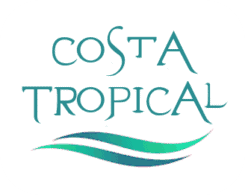- Home
- Listings
- Things To See & Do
- Car Hire
- News
- Properties
- What’s On
ES
History
Rich and Colourful History
The history of the region is every bit as rich and colourful as its natural features. It was here, in Granada, that Christopher Columbus persuaded queen Isabel to finance his expedition to the Indies, which of course led to the discovery of America. And it was here that the two opposing forces of Christianity and Islam – East and West – had their final confrontation, in which Granada became the last independent Muslim city on the Iberian Peninsula.
The Iberio-Celts, the Moors, the Visigoths, the Phoenicians, the Carthaginians, the Greeks and the Romans all had control of Granada at different periods in the area’s history, and each of these occupiers had an influence on the culture, the literature, the music, the art, the food, the architecture and many other aspects of Andalusian life and society. For visitors who know something of the region’s rich and varied history, therefore, there are interesting things to be seen in almost every direction one looks, and every landmark tells its own fascinating story.
For visitors with only a short time to explore Granada, we offer the following sightseeing and “things to do” suggestions.
The history of the Costa Tropical is a tapestry woven with threads of ancient civilizations, conquests, and cultural exchange. Situated along the Mediterranean coast of Spain, this region has been a crossroads of civilizations for millennia.
Phoenician and Roman Influence: The story begins with the Phoenicians, who established trade routes along this coastline around 1100 BC. They were followed by the Romans, who left their mark with impressive archaeological sites, such as the ancient fish-salting factory in Almuñécar.
Moorish Rule: The Costa Tropical bore witness to the Islamic period in Iberian history. The Moors, who arrived in the 8th century, built fortifications, terraced fields, and irrigation systems that are still in use today. Almuñécar’s San Miguel Castle is a testament to their architectural prowess.
Christian Reconquest: The Catholic Monarchs, Ferdinand and Isabella, led the Christian Reconquest in the late 15th century. The region’s coastal defenses were strengthened with the construction of forts and watchtowers.
Pirate Attacks and Trade: The Costa Tropical’s strategic location made it susceptible to pirate attacks during the 16th and 17th centuries. Yet, it also facilitated trade between the Americas and Europe, bringing prosperity to the region.
19th and 20th Centuries: The 19th century brought changes with the decline of traditional industries like sugarcane and the emergence of tourism. In the 20th century, the Costa Tropical transformed into a popular tourist destination, attracting visitors from around the world.
Modern Era: Today, the Costa Tropical continues to captivate with its blend of ancient history, natural beauty, and vibrant culture. Its towns and villages, each with its unique character, preserve the legacy of centuries gone by.
The history of the Costa Tropical is a testament to the resilience and adaptability of its people, who have shaped this region into the dynamic and culturally rich destination it is today.
